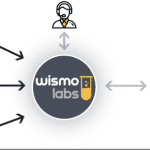The Role of Product Discovery in E-commerce
In e-commerce, product discovery refers to the process through which customers find products that match their needs, desires, or interests. Traditional e-commerce platforms often rely on search bars, categories, and filtering tools to help customers narrow down their options. While these tools are helpful, they are limited by the user’s knowledge of the store’s offerings and the effectiveness of the search algorithms.
As product catalogs grow, finding the right product becomes increasingly challenging. Consumers may not know exactly what they want, or they may not know that a particular product even exists on the platform. That’s where AI chatbots come in.
AI Chatbots: A New Way to Discover Products
Here are some ways AI chatbots are enhancing product discovery:
1. Conversational Search and Recommendations
Rather than using a traditional search bar or filtering system, customers can engage with AI chatbots in a conversational manner to discover products. For example, a customer might say, “I’m looking for a red leather jacket for winter,” and the chatbot can respond with a curated list of relevant products. The chatbot can ask follow-up questions to narrow down the options further, such as the customer’s size, budget, and preferred style.
This conversational approach is more intuitive than traditional search methods. Customers can describe their needs in natural language, and the chatbot responds with tailored suggestions, making the process of finding products feel much more like a personalized shopping experience.
2. Personalization Through Data Insights
AI chatbots can access vast amounts of customer data, such as browsing history, past purchases, and demographic information. By analyzing this data, chatbots can recommend products that are relevant to individual customers.
3. Dynamic Product Suggestions Based on Behavior
AI chatbots can track a customer’s browsing behavior in real-time and adjust recommendations based on their actions. If a customer spends time looking at a particular category of products, the chatbot can offer more suggestions within that category or similar products. If the customer adds items to their cart or wishlist, the chatbot can suggest related products, helping customers complete their purchase or discover additional items they may not have considered.
For example, if a customer is looking at outdoor equipment, the chatbot could recommend additional camping gear, clothing, or accessories. This dynamic, behavior-based recommendation system keeps the customer engaged and increases the likelihood of additional purchases.
4. Voice-Activated Product Discovery
With the increasing adoption of voice assistants like Amazon Alexa and Google Assistant, AI chatbots are becoming an integral part of voice-activated product discovery. Customers can now ask voice-powered chatbots to recommend products hands-free, which makes shopping more convenient and interactive.
For example, a customer might ask, “Alexa, recommend me some gift ideas for my sister,” and the voice assistant, powered by AI, can provide a list of curated options based on the customer’s preferences and previous interactions. Voice-activated discovery adds a new dimension to the shopping experience, allowing customers to browse and make purchases without needing to look at a screen.
5. Discovery Through Social Media and Messaging Apps
E-commerce businesses are increasingly integrating AI chatbots into social media platforms like Facebook Messenger, Instagram, and WhatsApp. These platforms offer a more personalized, real-time way to engage with customers.
Imagine a customer browsing an Instagram store page. They can directly interact with the chatbot to ask questions about products or request product recommendations without having to leave the app. Similarly, chatbots on messaging platforms like WhatsApp can recommend products based on customer inquiries, offer sales updates, or even guide them through the purchasing process, making it easier to discover and buy products within a messaging interface.
Benefits of AI Chatbots in Product Discovery for E-commerce Businesses
The implementation of AI-powered chatbots for product discovery offers several significant benefits for e-commerce businesses. Here are some key advantages:
1. Enhanced Customer Experience
Ai chatbot for Ecommerce provides a more engaging, interactive, and personalized shopping experience, making it easier for customers to find the products they want. The conversational approach to product discovery feels more like receiving assistance from a knowledgeable sales associate than navigating a traditional e-commerce platform. This improves the overall customer experience and increases the likelihood of customers returning.
2. Increased Conversion Rates
By offering tailored product recommendations and simplifying the discovery process, AI chatbots can help businesses increase conversion rates. Personalized product suggestions make it more likely that customers will find products they want to purchase, and dynamic, behavior-driven recommendations encourage them to buy more.
Moreover, because chatbots engage customers in real-time, they can answer questions, address concerns, and offer assistance during the buying process, reducing friction and improving the chances of conversion.
3. Time and Cost Efficiency
AI chatbots can handle a large volume of customer interactions simultaneously, making them an efficient tool for businesses. They can quickly respond to customer queries, offer product recommendations, and even guide customers through the purchase process, freeing up human agents to handle more complex issues.
This efficiency allows businesses to scale their operations without needing to hire additional customer service staff. It also saves customers time, providing them with instant responses and recommendations that would otherwise require human assistance.
4. Data-Driven Insights for Marketing and Merchandising
AI chatbots provide valuable data about customer preferences, browsing habits, and purchasing behavior. By analyzing this data, businesses can gain insights into customer trends, popular products, and potential gaps in their product offerings. This data can be used to refine marketing strategies, create targeted campaigns, and optimize product catalogs for better sales performance.
For example, if chatbots notice that a particular product is frequently recommended but not purchased, businesses can investigate whether the product needs better marketing, pricing adjustments, or better placement on the website.
5. Scalability
As e-commerce businesses grow, managing product discovery for a large catalog can become challenging. AI chatbots can scale with the business, handling a larger volume of customer inquiries and offering personalized product recommendations to an increasing number of customers. This scalability ensures that businesses can continue to provide a high level of service without being overwhelmed.
Challenges and Considerations for Implementing AI Chatbots in Product Discovery
While AI chatbots offer many benefits, businesses should be mindful of the following challenges when implementing them for product discovery:
1. Data Privacy and Security
With the amount of data AI chatbots collect from customers, businesses must ensure that their chatbot systems are secure and compliant with data privacy regulations such as GDPR or CCPA. Protecting customer data is crucial for maintaining trust and avoiding legal issues.
2. Maintaining Chatbot Accuracy and Relevance
To offer effective product recommendations, AI chatbots need to be trained with high-quality, up-to-date product data. If the chatbot is not well-trained or the product information is inaccurate, it could lead to poor customer experiences and missed sales opportunities.
3. Balancing Automation and Human Support
While AI chatbots are highly effective at recommending products and handling basic customer interactions, there are still situations where human support is necessary. Businesses should ensure that their chatbot system can escalate complex queries to human agents when needed, creating a balance between automation and personalized support.
The Future of AI Chatbots in Product Discovery
As AI technology continues to advance, the capabilities of AI chatbots for product discovery will continue to improve. Chatbots will become better at understanding nuanced customer preferences, offering more sophisticated product recommendations, and delivering a truly personalized shopping experience. Future developments may include advanced emotional intelligence, enhanced contextual awareness, and seamless integration with new platforms such as virtual reality (VR) or augmented reality (AR) for an even more immersive shopping experience.
AI chatbots will also become more capable of learning from past interactions, improving their recommendations over time and anticipating customer needs before they even ask. This level of personalization will not only enhance product discovery but also help create a stronger bond between customers and brands.
Conclusion
AI chatbots are transforming product discovery in e-commerce by offering a more personalized, efficient, and interactive way for customers to explore a brand’s offerings. By providing conversational product recommendations, leveraging customer data for tailored suggestions, and integrating with social media and messaging platforms, AI chatbots create a more engaging shopping experience that boosts customer satisfaction and drives sales.
For e-commerce businesses, implementing AI chatbots for product discovery can lead to higher conversion rates, improved customer loyalty, and valuable insights for better marketing and merchandising. As AI technology continues to evolve, the future of product discovery will be increasingly driven by intelligent, personalized chatbot interactions, creating new opportunities for growth in the e-commerce industry.






